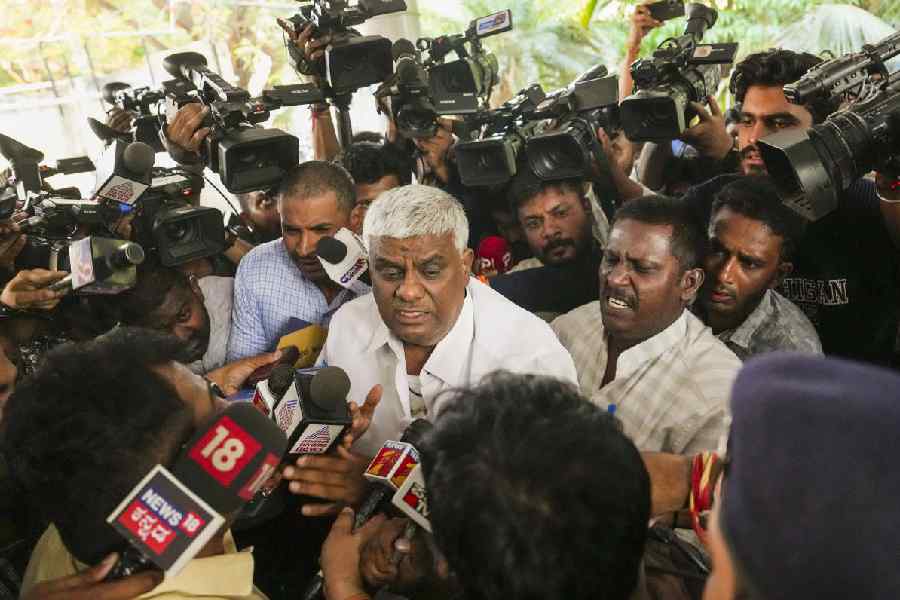New Delhi: The Law Commission of India on Thursday said "people should be at liberty to show their affection towards their country in their own way" and invited the views of all stakeholders on repealing IPC Section 124A relating to sedition that entails a punishment of up to life imprisonment.
Section 124A says: "Whoever, by words, either spoken or written, or by signs, or by visible representation, or otherwise, brings or attempts to bring into hatred or contempt, or excites or attempts to excite disaffection towards the government established by law in India, shall be punished with imprisonment for life, to which fine may be added, or with imprisonment which may extend to three years, to which fine may be added, or with fine."
The section has attracted criticism in recent times as it has been invoked against several public personalities, particularly those critical of the government such as youth leader Kanhaiya Kumar and Gujarat Patidar leader Hardik Patel, for organising protests.
Some others who have been slapped with Section 124A are All India Majlis-e-Ittehadul Muslimeen MP Asaduddin Owaisi - for offering legal aid to some suspected terrorists - and actress-turned-politician Ramya - for saying "Pakistan is not hell".
Union finance minister Arun Jaitley was last year slapped with a sedition case by a lawyer from Lucknow for appearing critical of the Supreme Court over the National Judicial Appointments Commission judgment. Allahabad High Court quashed the case against Jaitley.
According to the National Crime Records Bureau, 35 cases of sedition were reported in 2016.
Uploading a "consultation paper" on its website, the Law Commission observed: "In a democracy, singing from the same songbook is not a benchmark of patriotism. People should be at liberty to show their affection towards their country in their own way. For doing the same, one might indulge in constructive criticism or debates, pointing out the loopholes in the policy of the government.
"Expressions used in such thoughts might be harsh and unpleasant to some, but that does not render the actions to be branded seditious. Section 124A should be invoked only in cases where the intention behind any act is to disrupt public order or to overthrow the government with violence and illegal means.
"Every irresponsible exercise of right to free speech and expression cannot be termed seditious. For merely expressing a thought that is not in consonance with the policy of the government of the day, a person should not be charged under the section.
"Expression of frustration over the state of affairs, for instance, calling India 'no country for women', or a country that is 'racist' for its obsession with skin colour as a marker of beauty, are critiques that do not 'threaten' the idea of a nation," Justice B.S. Chauhan, chairman of the commission and a former Supreme Court judge, said in the consultation paper.
Justice Chauhan added: "Berating the country or a particular aspect of it cannot and should not be treated as sedition. If the country is not open to positive criticism, there lies little difference between the pre- and post-independence eras. Right to criticise one's own history and the right to 'offend' are rights protected under free speech.
"While it is essential to protect national integrity, it should not be misused as a tool to curb free speech. Dissent and criticism are essential ingredients of a robust public debate on policy issues as part of a vibrant democracy. Therefore, every restriction on free speech and expression must be carefully scrutinised to avoid unwarranted restrictions."
The commission noted that Section 124A was a British legacy, yet the UK itself had a decade ago abolished the sedition law.
The commission hoped that a healthy debate would take place among legal luminaries, lawmakers, government and non-government agencies, academics, students and above all, the general public, on the issues flagged by it so that a public-friendly amendment could be introduced.
The Law Commission can make recommendations to the government. However, the suggestions only have persuasive value and no binding effect on the government, much less Parliament.
SEDITION
What Section 124A says
“Whoever, by words, either spoken or written, or by signs, or by visible representation, or otherwise, brings or attempts
to bring into hatred or contempt, or excites or attempts to excite disaffection towards the government established by law in India, shall be punished with imprisonment for life, to which fine may be added, or with imprisonment which may extend to three years, to which fine may be added, or with fine.”










